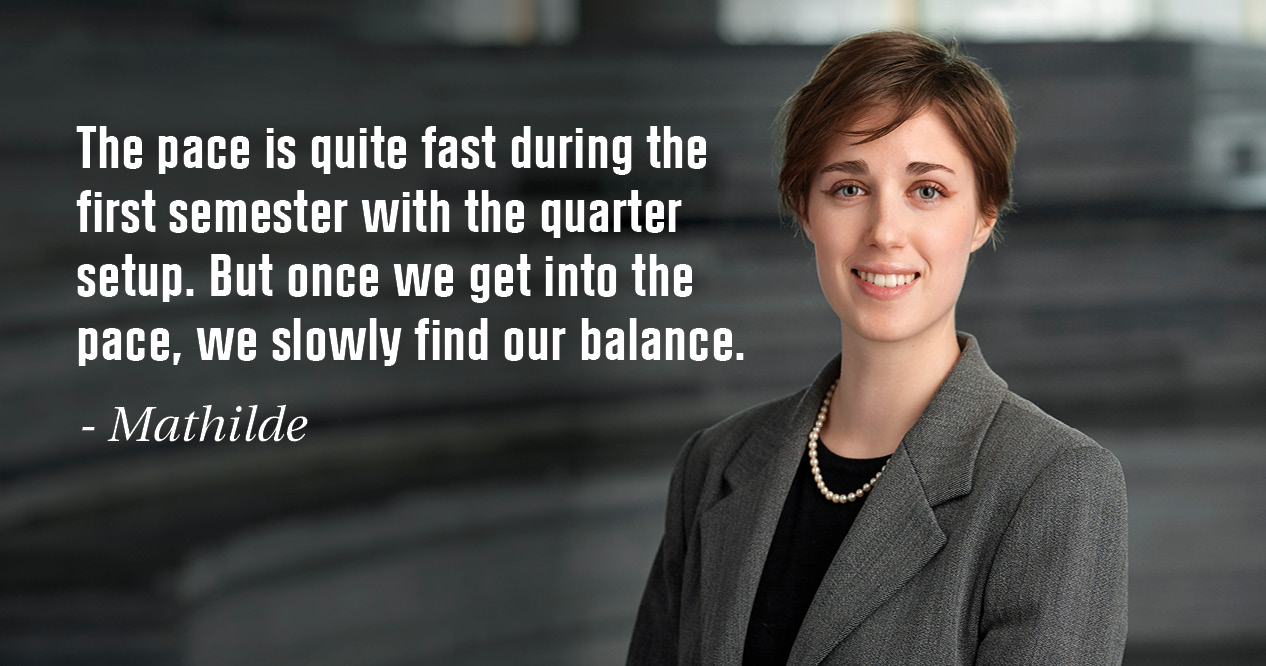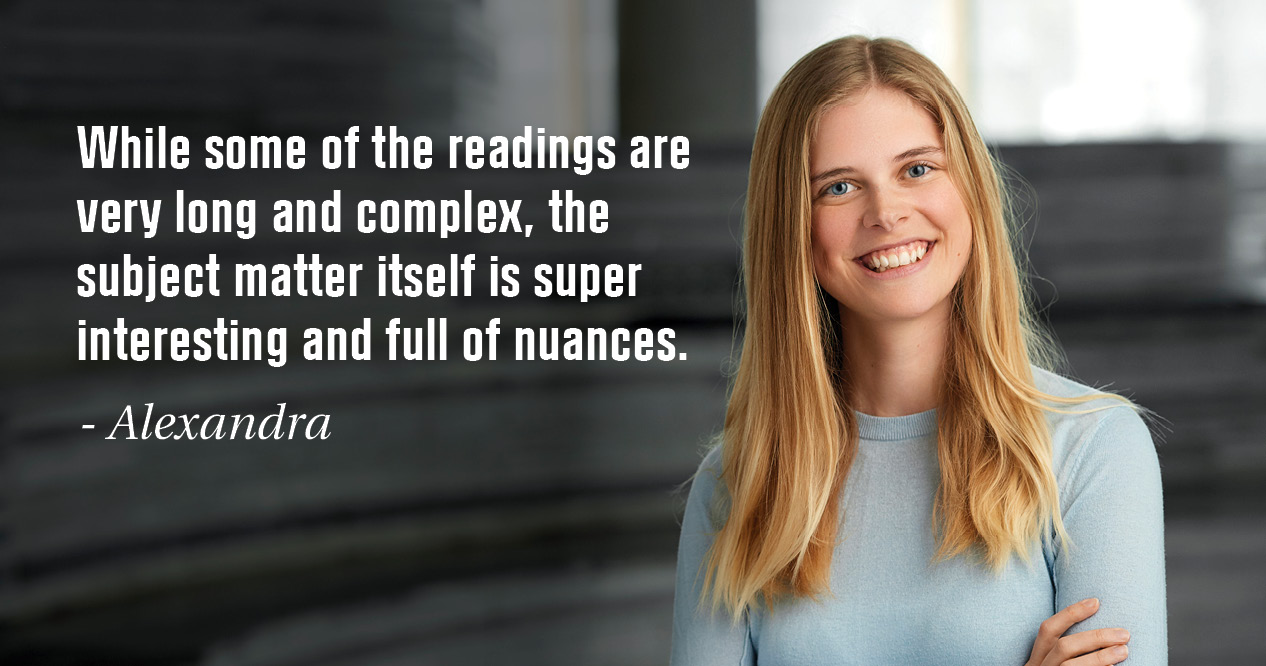Mathilde
Why did I choose my programme (and CBS)?
Diversity and Change Management has a strong focus on organisational and project management and leadership at a local and global/international context, which I aim to make my field of expertise. Furthermore, the courses offer discussion and analysis around various cultural, political and social issues, both at the organisation’s internal scale and external local context, which I consider highly valuable for an international career in management and leadership.
What do I like the best?
I really enjoy the freedom and opportunities that the programme gives: We get to choose our regional track course according to our field of interest. We also have the option to sign up for the Entrepreneurship and Private Sector Development in Uganda. Here we go on a field trip to Uganda for an immersive experience on business development in a non-European context, where we get to directly apply our research method. Moreover, we have many options to choose from on our 3rd semester between exchange, electives, minors, internship or even sign up for the CEMS programme.
How do I experience the difference in academic level between my bachelor and master programme?
The academic level on the master's is higher than on the bachelor’s – both in terms of workload regarding the readings and individual work as well as group work inside and outside of class.
As the quarters go by really fast, the academic workload is much more compressed within a week than it used to be on the bachelor’s.
However, I like the autonomy we are given to choose our exam themes. Most exams are written home assignments, and we get to choose our own research focus, which makes it easier, as we are truly passionate by the subject.

What are the biggest challenges in my programme?
I would say that what I struggled the most with in the beginning was organising my readings and projects. As the pace is quite fast during the first semester, especially due to the quarter set-up, I had a hard time managing all the readings plus the individual and group work for classes. But once we get into the pace, we slowly find our balance and it's all about being consistent in our studies.
Having a study group can be a big help when it comes to sharing notes and even going through the readings together.
What would I have liked to have known before starting my programme?
I would have liked to know just how fast-paced the first semester would be. We had classes for only 6 weeks for each quarter, and for each course we had to submit a first draft of our paper mid-quarter. This means we needed to have a research focus and a good understanding of theories and concepts by the end of the 3rd week of each course. If I had known that, I would have prioritised the theoretical readings over less essential ones, as I would have saved time.
What do I want to do after finishing my programme?
I would like to have an international career, so I my goal is to look for positions abroad, mainly in French-speaking countries, so I can put my intercultural and language skills to use. I am considering finding a first job in Denmark with connections to international markets, and then find contacts within that job to integrate another position abroad. So far, I’m mostly interested in project management and international politics.
If I could give myself a piece of advice, before starting it would be…
Plan early, prioritise your readings and schedule your work, individual research and group work in advance. Those were the elements that I struggled with the most when starting my master’s as I couldn't really evaluate the difference in workload between the bachelor’s and master’s. It’s important to find a good balance between the different types of studying (readings, personal research for projects and group work). I would say the most important is to find a technique and rhythm you are comfortable with, so you don't exhaust yourself.




